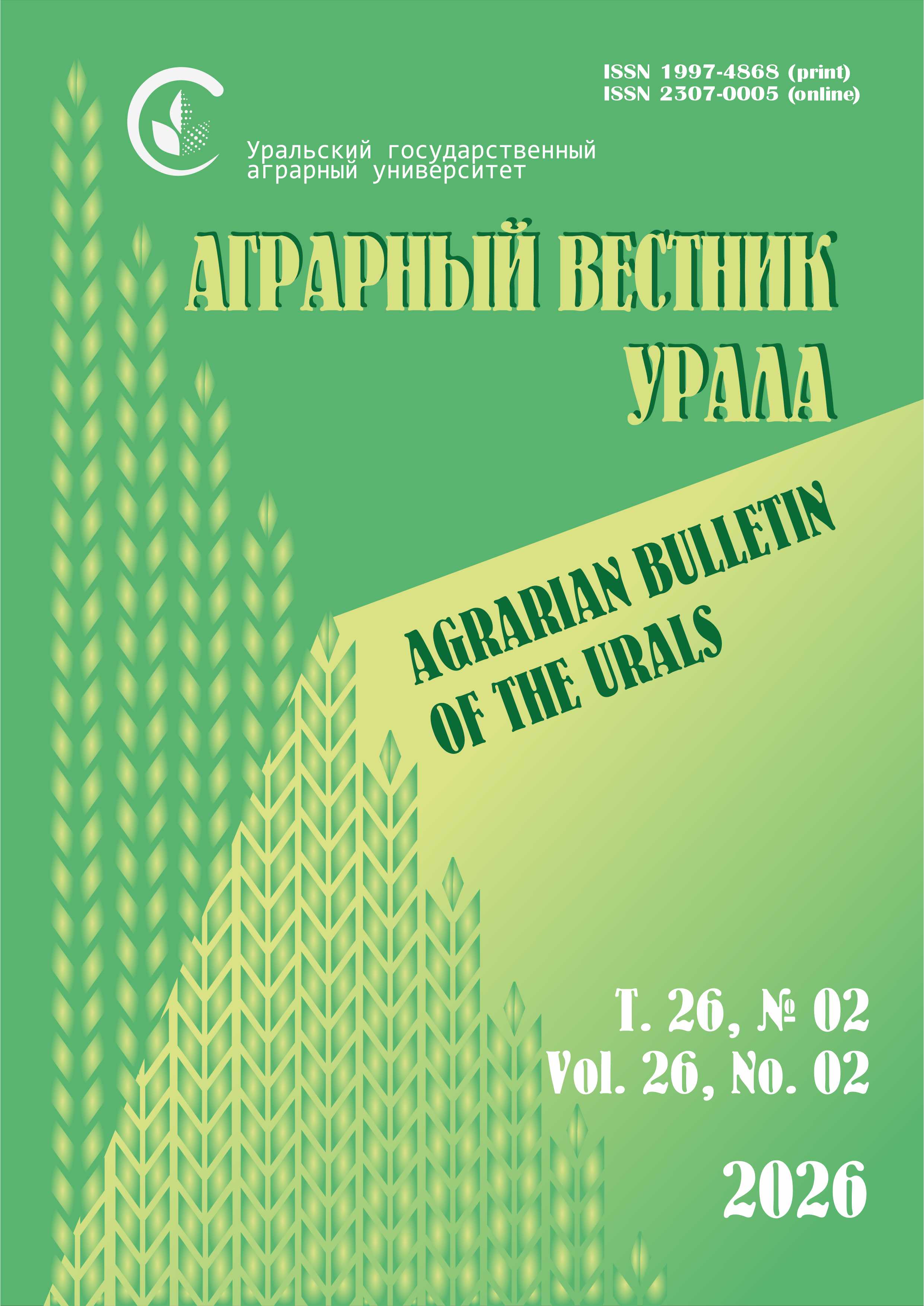Authors: N. M. Chernogradskaya, R. L. Sharvadze, M. F. Grigoriev, A. I. Grigorieva
Yakut State Agricultural Academy, Yakutsk, Russia
Far Eastern State Agrarian University, Blagoveshchensk, Russia
North-Eastern Federal University named after M. K. Ammosov, Yakutsk, Russia E-mail: This email address is being protected from spambots. You need JavaScript enabled to view it.
Abstract. The purpose of the study is to determine the effect of zeolite honguruu on the growth and development, digestibility and metabolism of geese in the conditions of Yakutia. During the experiment, research methods generally accepted in poultry farming were used. Live weight – by weighing birds, digestibility and metabolism according to the method of VIZH, VNITIP. The scientific novelty of the research was to find the possibility of involving natural zeolite in the feed ration of young goose young in the conditions of Yakutia. For carrying out the experiments, we formed 3 groups of geese of 20 animals in each analogue method. Therefore, we determined the effect of zeolite on growth, development, physiological state, and digestibility of nutrients. The purpose of the research is to identify the degree of safety when using zeolite in poultry farming and to obtain an environmentally friendly product for human nutrition. The use of zeolite contributed to an increase in gross increase in live weight by 14.13 % and 19.22 %. So, the supplement contributed to an increase in average daily growth during all periods of cultivation: in 60–70 days – 7.85 % and 15.24 %; in 70–80 days – by 21.73 % and 28.30 %, in 80–90 days – by 13.61 % and 15.76 %. During the experiment, the control group of geese accounted less than the experimental groups of birds – 14.14 % and 19.22 %. A physiological experiment was conducted to determine the effect of zeolite honurin on metabolism. It was found that the additive contributes to better digestion of nutrients in terms of dry matter by 0.9 % and 1.58 %, organic matter by 0.83 % and 1.38 %, protein by 0.64 % and 0.92 %, fat by 0.84 % and 1.58 %, fiber by 0.33 % and 2.21 %, and nitrogen-free extractives by 0.96 % and 1.42 %. During the experiment, it was found that the nitrogen balance in all geese was positive but had differences in the degree of deposition in the body. So the experimental geese of the experimental groups exceeded their peers from the control group by 3.47 % and 5.56 %, respectively. Thus, the use of zeolite zeolite is positive for the growth and development, digestibility and metabolism of geese.
Keywords: geese, feeding, feed additives, metabolism.
Download the full text of the article
For citation: Chernogradskaya N. M., Sharvadze R. L., Grigoriev M. F., Grigorieva A. I. Influence of zeolite honguruu on growth and development, digestibility and metabolism of geese // Agrarian Bulletin of the Urals. 2020. No. 05 (196). Pp. 80‒85. DOI: 10.32417/1997-4868-2020-196-5-80-85.












